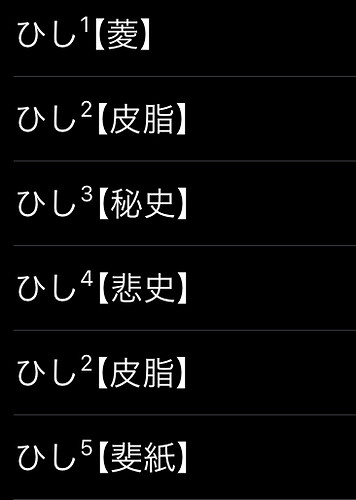A question about the 大勢の人でひし____いるこの電車は、今にもパンクしそうです。
The grammar point is N+めく, to show signs of N, have the appearance of N,
But none of the nouns I looked up for ひし seem to fit. Instead the sentence makes sense if the verb 犇く is used instead. People are milling about = 人で犇く
It seems like this sentence got linked to the grammar N+めく by mistake and needs to be reassigned to the vocabulary word for 犇く.
The only other reading I found was an uncommon one for 彼是, ひし, usually read あれこれ, which also doesn’t make sense in this context.



